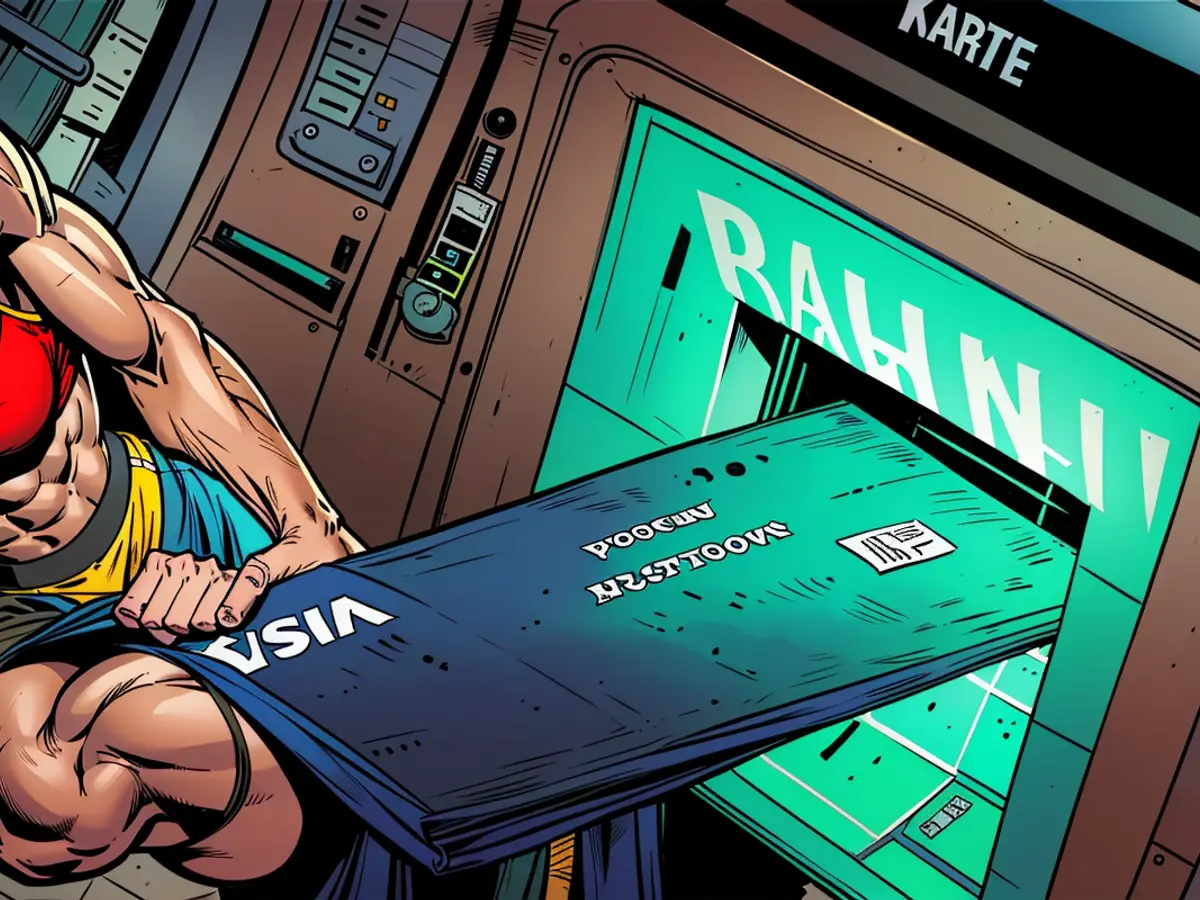Lower Saxony - Refugee payment card limited to 50 euros in cash
In Lower Saxony, refugees with the planned payment card should be able to withdraw a maximum of 50 Euros. Minister-President Stephan Weil intends to limit cash withdrawals despite criticism from the Green coalition partner. "We have the clear understanding that we will work with 50 Euros," said the SPD politician to the German Press Agency.
Weil justified the step with as much unity as possible in Germany. "It makes no sense to differentiate ourselves in all possible special regulations for the payment card in this regard. That would not be good for society and would also be confusing for the affected parties," said the head of government.
The CDU has been calling for the limit for months
However, the holders of the payment card would not be limited to purchasing only with cash, Weil emphasized. "Certain products or services they can buy using a direct debit procedure. This is particularly important in public transport and telecommunications," he said.
A large part of the federal states had agreed at the end of June to limit cash withdrawals to 50 Euros per month. In Lower Saxony, Interior Minister Daniela Behrens (SPD) had previously refused to commit to a specific amount. The CDU had called for the 50-Euro limit as early as April.
The Greens feel left out
The Greens, the coalition partners of the SPD in Lower Saxony, view the approach critically. "We consider the 50-Euro limit for cash withdrawals to be wrong," said faction leader Anne Kura after the agreement of the states. All the more important it is to pay attention to discrimination-free and everyday practicality. "Restrictions, for example in terms of regional reach or product range, we reject. Refugees must be enabled to live a self-determined life in dignity."
According to an NDR report, there is great unrest in the Green state association. In a letter to the party executive, members accuse Minister-President Weil of disrespecting the coalition partner. With the cash limit, they argue, one is promoting "a policy that aims at exclusion and demarcation."
Opposition leader Sebastian Lechner of the CDU, however, once again emphasized the 50-Euro limit. It is important to "reduce false incentives for migration," he said. "Cash withdrawals are one of them."
The exact introduction date of the payment card is still unclear. Interior Minister Behrens said in June in the state parliament that the timing depends on the completion of a cross-state tender procedure. 14 of the 16 federal states are involved in this – only Bavaria and Mecklenburg-Vorpommern are going their own way. In Lower Saxony, the cards are planned to be issued in the reception centers, from where they can be taken to the municipalities by the refugees.
- The CDU in Lower Saxony has been advocating for the 50-Euro limit on cash withdrawals for refugees using the planned payment card for several months now.
- Despite criticism from the Green coalition partner, Minister-President Stephan Weil of SPD insisted that the limit is necessary to promote unity in Germany.
- Interior Minister Daniela Behrens (SPD) initially refused to commit to a specific limit, but later agreed to the 50-Euro cap, following the agreement of a majority of federal states.
- The Greens, coalition partners of the SPD in Lower Saxony, have expressed their disapproval of the cash limit, arguing that it could lead to discrimination and hinder refugees from living a self-determined life in dignity.
- Opposition leader Sebastian Lechner of the CDU, on the other hand, supports the 50-Euro limit, claiming that it helps to reduce false incentives for migration.








